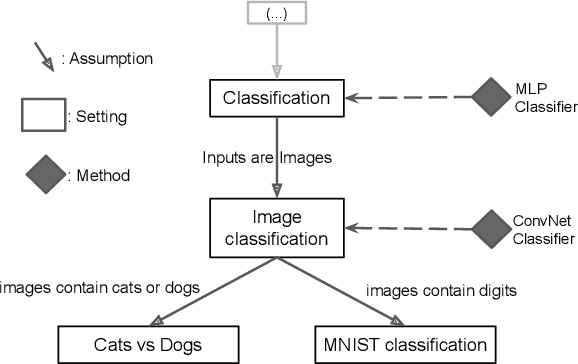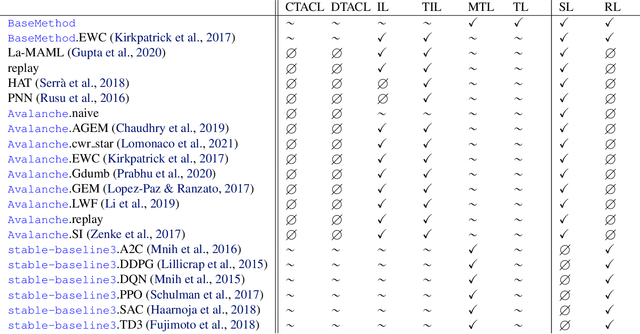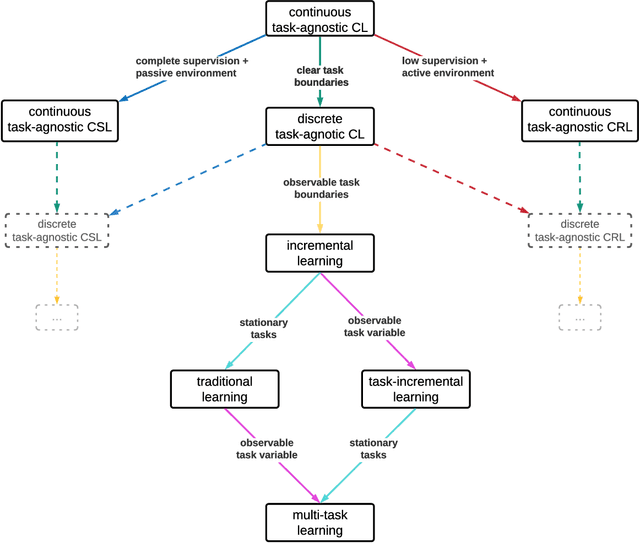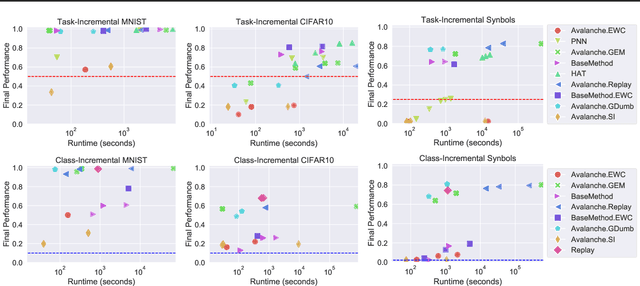Ryan Lindeborg
Hierarchical Neural Program Synthesis
Mar 09, 2023



Abstract:Program synthesis aims to automatically construct human-readable programs that satisfy given task specifications, such as input/output pairs or demonstrations. Recent works have demonstrated encouraging results in a variety of domains, such as string transformation, tensor manipulation, and describing behaviors of embodied agents. Most existing program synthesis methods are designed to synthesize programs from scratch, generating a program token by token, line by line. This fundamentally prevents these methods from scaling up to synthesize programs that are longer or more complex. In this work, we present a scalable program synthesis framework that instead synthesizes a program by hierarchically composing programs. Specifically, we first learn a task embedding space and a program decoder that can decode a task embedding into a program. Then, we train a high-level module to comprehend the task specification (e.g., input/output pairs or demonstrations) from long programs and produce a sequence of task embeddings, which are then decoded by the program decoder and composed to yield the synthesized program. We extensively evaluate our proposed framework in a string transformation domain with input/output pairs. The experimental results demonstrate that the proposed framework can synthesize programs that are significantly longer and more complex than the programs considered in prior program synthesis works. Website at https://thoughtp0lice.github.io/hnps_web/
Sequoia: A Software Framework to Unify Continual Learning Research
Aug 03, 2021



Abstract:The field of Continual Learning (CL) seeks to develop algorithms that accumulate knowledge and skills over time through interaction with non-stationary environments and data distributions. Measuring progress in CL can be difficult because a plethora of evaluation procedures (ettings) and algorithmic solutions (methods) have emerged, each with their own potentially disjoint set of assumptions about the CL problem. In this work, we view each setting as a set of assumptions. We then create a tree-shaped hierarchy of the research settings in CL, in which more general settings become the parents of those with more restrictive assumptions. This makes it possible to use inheritance to share and reuse research, as developing a method for a given setting also makes it directly applicable onto any of its children. We instantiate this idea as a publicly available software framework called Sequoia, which features a variety of settings from both the Continual Supervised Learning (CSL) and Continual Reinforcement Learning (CRL) domains. Sequoia also includes a growing suite of methods which are easy to extend and customize, in addition to more specialized methods from third-party libraries. We hope that this new paradigm and its first implementation can serve as a foundation for the unification and acceleration of research in CL. You can help us grow the tree by visiting www.github.com/lebrice/Sequoia.
 Add to Chrome
Add to Chrome Add to Firefox
Add to Firefox Add to Edge
Add to Edge